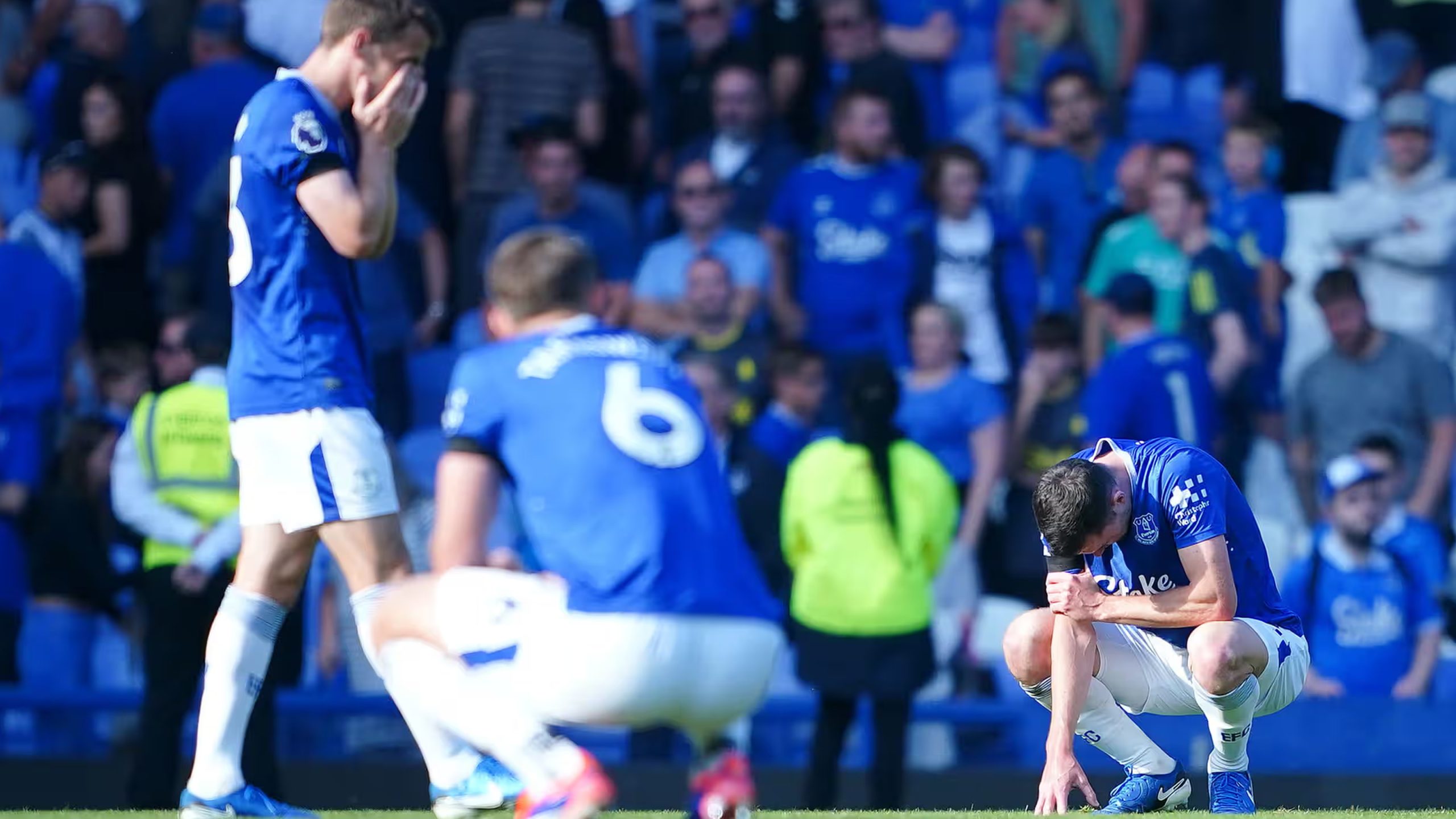
Although it was the greatest season in Everton’s history, winning the League Cup, the Cup Winners’ Cup and the FA Cup final 40 years ago, a remarkable glory that came at a time when it was hard to see how English football, ravaged by tragedy and disaster, could go on.
Everton were one of the “big five” clubs who led the Premier League’s breakaway in 1992, along with Manchester United; Arsenal With Liverpool and Spurs The fixture was considered by many to be a necessary step in the rebirth of the game, but Everton’s only trophy since the split was the 1995 FA Cup. After losing three league games in a row at the start of the season, it looked like they were going through a four-year relegation season.
Five days after Everton wrapped up the 1984-85 title, 56 people died in a fire in Bradford, and on the same day a 15-year-old Leeds fan died when a wall collapsed during an attack at a game in Birmingham.Four days later, Everton beat Rapid Vienna in the Cup Winners’ Cup final.Two weeks later, 39 people were killed in a charge by Liverpool fans at the Heysel Stadium in Brussels.League attendance has doubled in 40 years.This may be partly true, but high-profile clubs coming into the game by signing attractive foreign stars can be an excellent marketing tool for cash-strapped marketing campaigns, as is often the case at the outset.With the rise of the Champions League in European football, the Premier League may need English clubs to compete, for example.
Sir Bob Murray, who was Sunderland’s chairman at the time, believed better facilities, as well as satellite television revenues, would boost football.It has become commonplace to talk about football in relation to finance, suggesting that the priority should not be profit, but that the sport suffers from appearance with a more equitable distribution (and to be fair to the Premier League.
Their loosely controlled capitalism is the world’s oligarchs and sheiks. States and private equity; Imagine attracting bluffers and opportunists? Of the original Big Five, only three have won the Premier League and only once (Liverpool).In the past 11 years, they have won the League Cup only once, reaching the top five (Liverpool).Everton face a disaster that will not be the first of five relegation games.
Standing as the third most successful team in English history is the League Cup twice in the decade from 1992.Everton, who won the FA Cup twice.However, the ban on English clubs after the Heysel disaster allowed them to become the fifth English team to win the European Cup, with titles in 1985 and 1987 being successful.The Big Five are the five teams with the highest average attendance.
Despite David Moyes’ economic prudence and top 10 success, the financial curve has always been evident. There is a growing sense of uncertainty about the place of a club unwilling to adapt to a declining position.Talent has been bought on the way down, not on the way up.Under the ownership of Farhad Moshiri, the road attachment to sign the elderly and missing seems to have been around for a long time. Signing to sell with young people and unproven profits is like it’s beneath them.
The result is the current chaos of four consecutive seasons of getting more from transfers than they spend, but still struggling to meet the rules of profitability and sustainability.The dubious choice of owners is still debated over the wreckage, and at the very least there is the prospect of a new arena.It may consume resources It should drive revenue both in the short term and in the long term.This is about modern football.
But they have to get to that future.The first 87 minutes against Bournemouth last weekend suggested they are capable of doing just that. Amidst all the chaos and negativity, I began to doubt whether they had a soul.But those are the details.The underlying impetus was the economic shift that transformed the game in 1992.